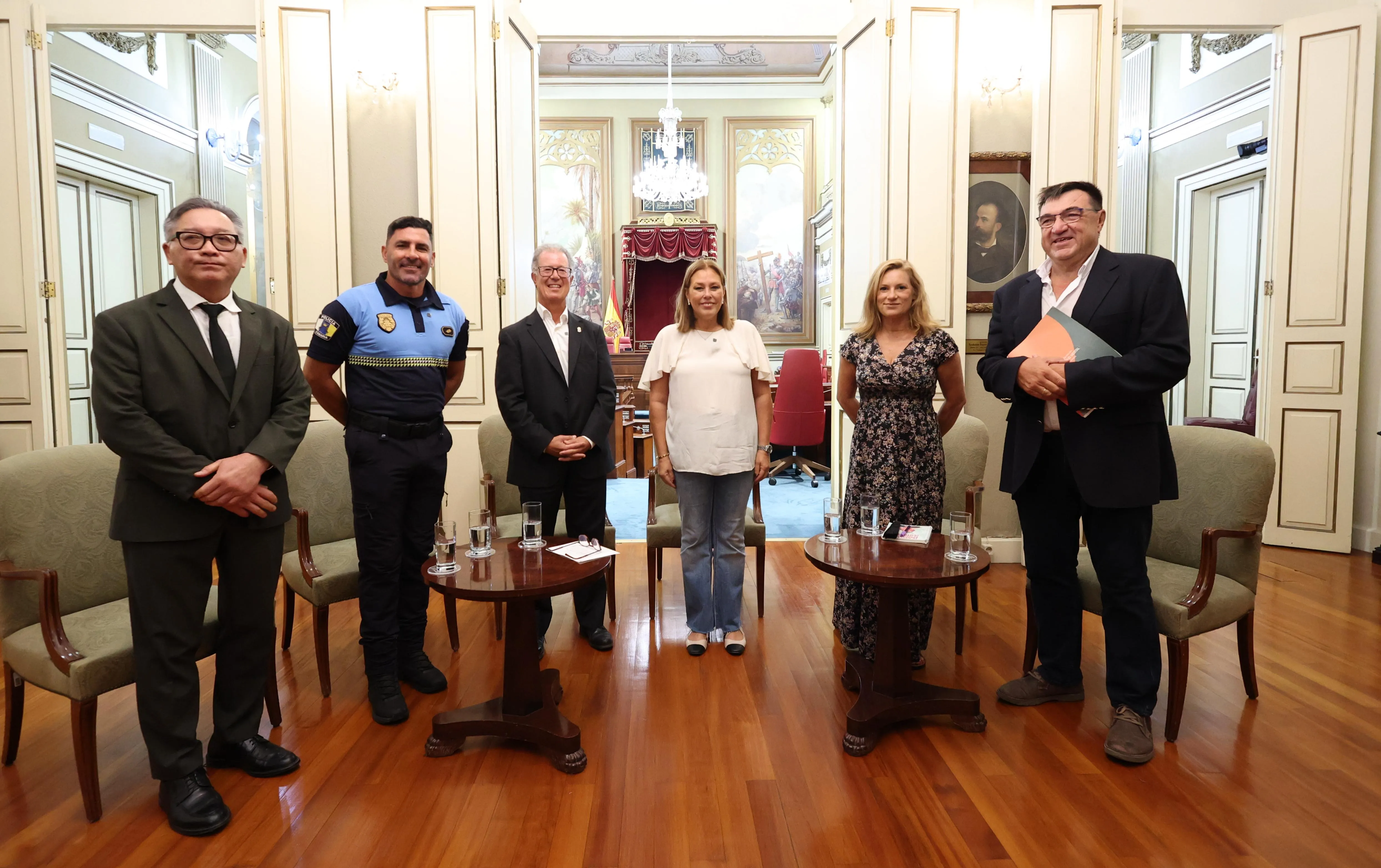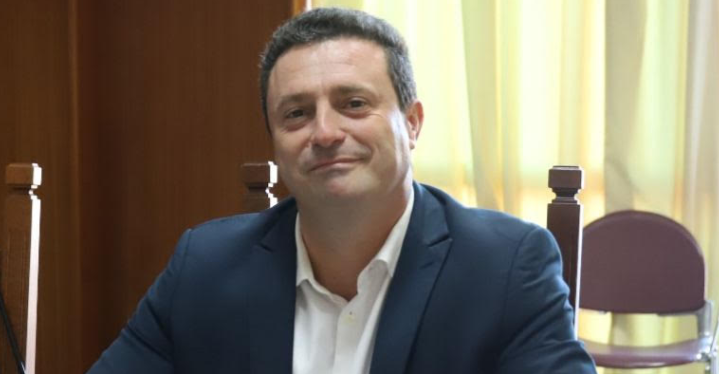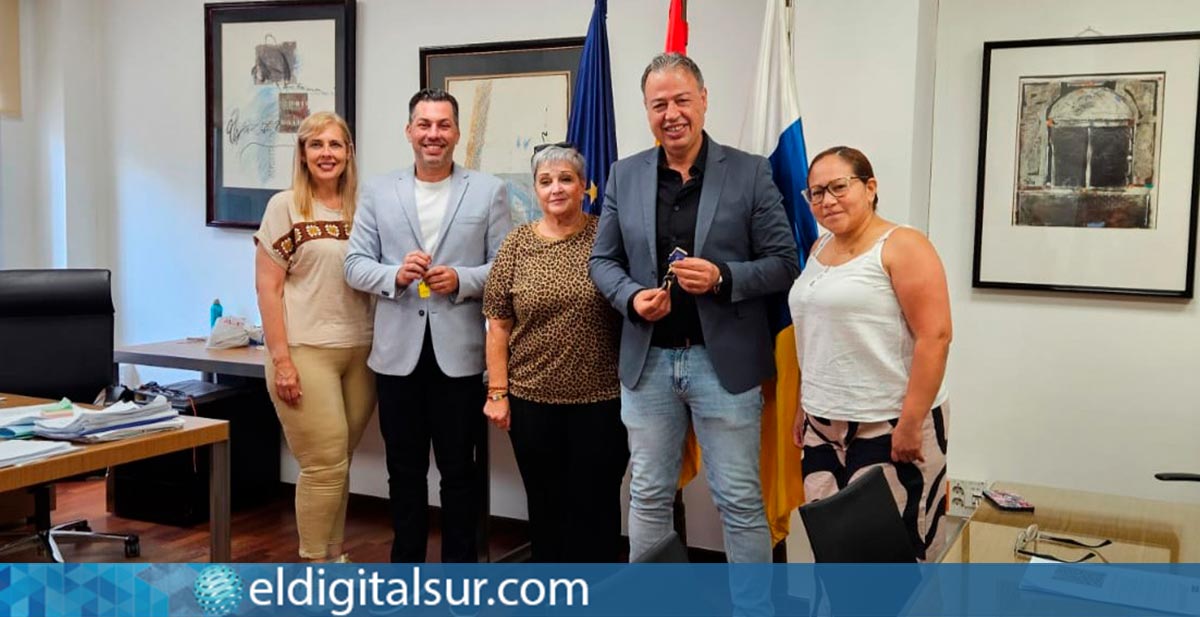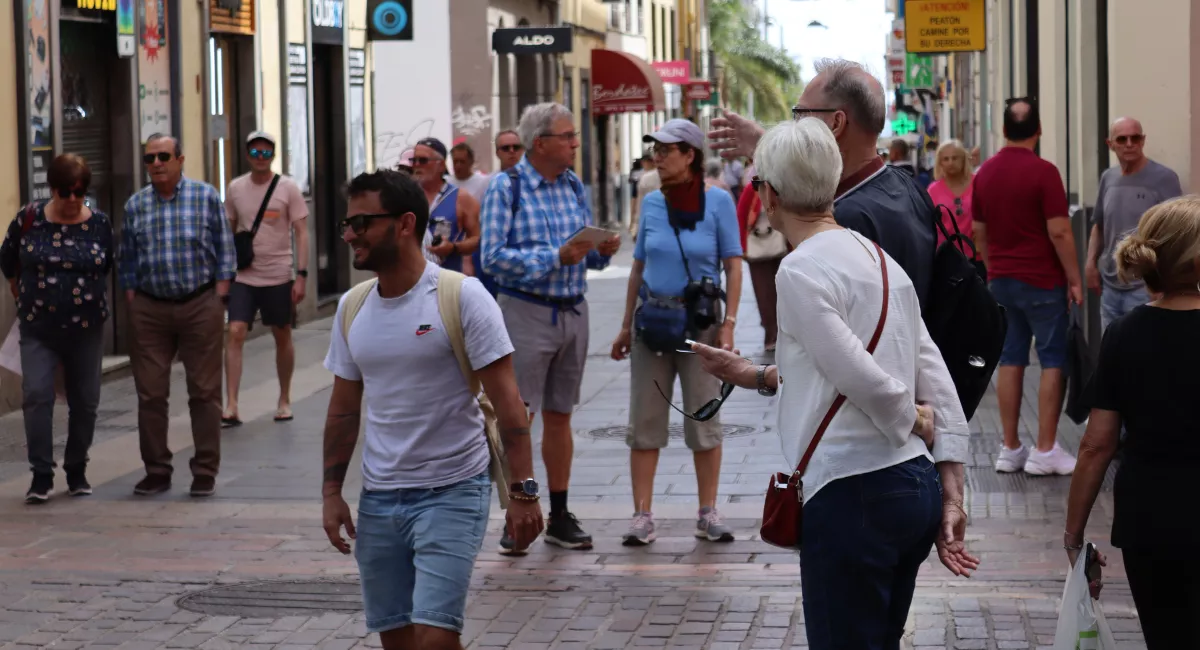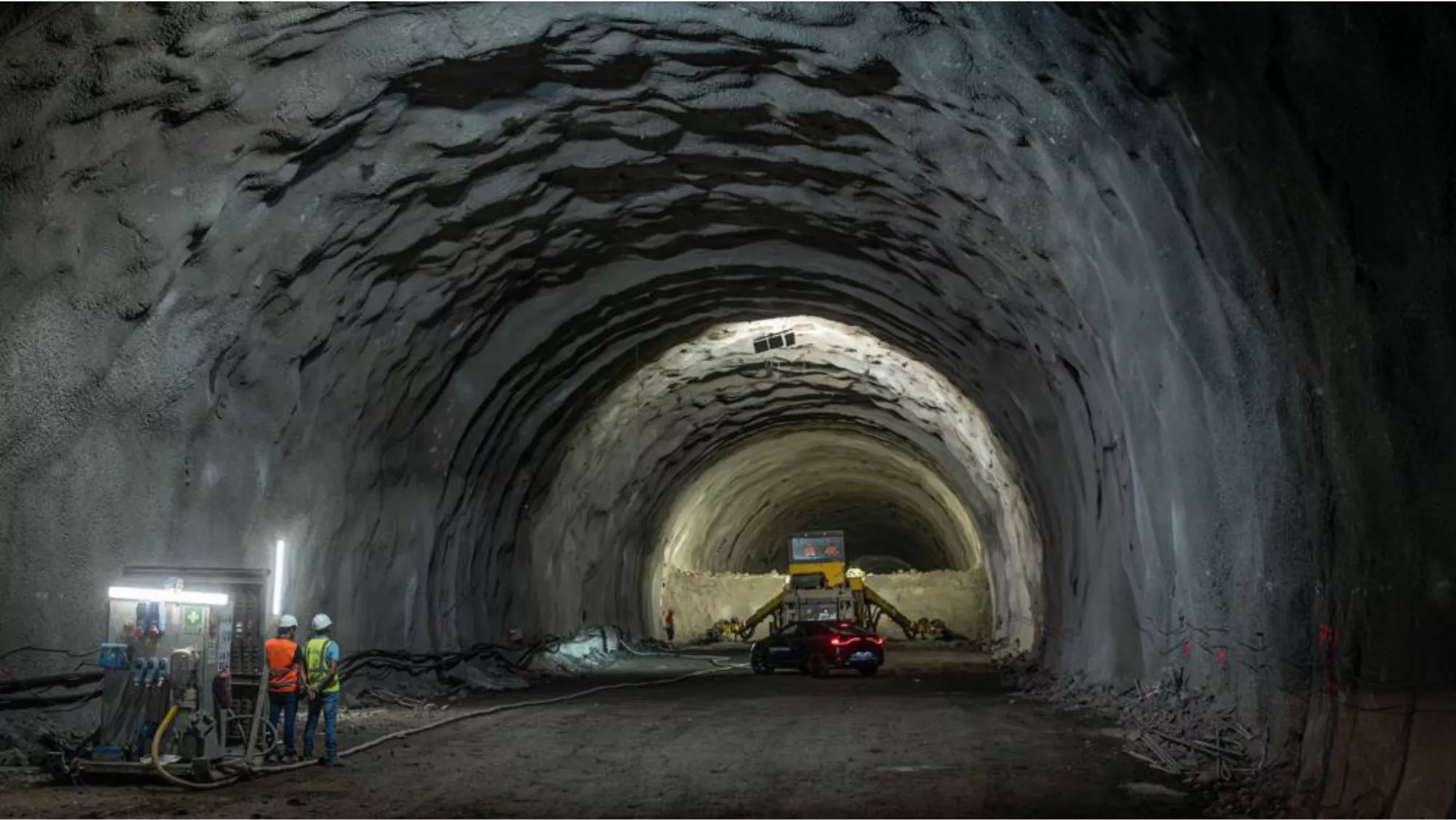The heat is intense on Heraclio Sánchez Street, San Cristóbal de La Laguna. The meeting is at the Academy of Music and Film Novilunio, a ‘talent factory’ that opened its doors in 2016. Minia Díaz, who has been the vocal coach for drag artist Eva Harrington for about six months, opens the door with a smile.
Inside, Eva, aged 28, “though she looks younger”, is ready to share some big news. She will be the second contestant from Tenerife to participate in the popular programme Drag Race España on ATRESplayer, which premiered its fifth edition this Sunday.
She appears slightly nervous about the photos, but within minutes, she relaxes and the conversation with DIARIO DE AVISOS flows smoothly. She speaks candidly, laughs easily, and remains approachable throughout.
“I’m a performer who claims to sing”
“In October, I will have been in this scene for nine years. I’m a performer who claims to sing,” explains Harrington. She confesses she is still processing the joy she felt when she was confirmed as a contestant on the talent show. “They made a video call to me. They were explaining some things, and suddenly, they told me it was a ruse, and I was in the season. I was in shock,” she recalls.
Drag Race España is a programme based on the American series RuPaul’s Drag Race, which hit screens in Spain in 2021. It brings together various drag queens who compete in weekly challenges: from runway shows to time-pressured sewing tasks, performances, comedy, and the well-known lip sync battles, where they go head-to-head in a playback of a song.
“I feel more comfortable in the performance challenges because it’s what I’ve worked on the most. What will challenge me the most is sewing because I don’t know how to sew, although I am preparing for it,” says the Tenerife native.
“Dita Dubois is my drag mother”
Before her, other Canary Islands drag artists have participated in the programme: Drag Vulcano from Gáldar was in the first season; Sethlas from Las Palmas de Gran Canaria competed in the second and later won the All Stars edition; Chuchi, also from Gran Canaria, was part of the third season; and Dita Dubois from Tenerife participated in the fourth.
Eva acknowledges Dubois as her “drag mother,” a figure she describes as essential in this artistic discipline. “She’s like a godmother. Someone who introduces you to the scene, teaches you how it works. A person to whom you can cling, like a friend or teacher. Ultimately, marginalised communities lean on the family they choose,” she reflects.
She describes her daily life as “like that of an ordinary person. Luckily, I now work in performance, and I’m also a makeup artist.” A routine that combines rehearsals and ample workload, leaving little room for rest. Díaz confirms this: “She doesn’t stop.”

Novilunio, a ‘talent factory’ in La Laguna
The space where Minia and her colleagues at Novilunio teach vocal technique and performance has been the training ground for singers like Mel Ömana, Claritzel Miyares, Beatriz Martín, and Héctor Artiles, as well as performers such as Alba Tonini, Diego Lupiáñez (Abubukaka), Javier Socorro (Solo Palique), and Ignacio de la Lastra.
Vocal coach Minia Díaz lavishes praise on Eva Harrington. “I’m in awe. It’s a source of pride for me to support this incredible artist. I’ve never had someone like Eva. I learn so much from her strength, perseverance, and elegance,” she states.
Before concluding the interview, the Tenerife native emphasises that the current visibility is the result of years of struggle and is no longer confined to the galas held during Carnival. “There are people who have suffered violence. Some venues had to close; shows were banned. During the Franco regime, you had to hide,” she recalls.
For all these reasons, while celebrating the impact of Drag Race España, she insists that drag “does not begin with television,” but is rooted in a journey marked by “struggle.”







